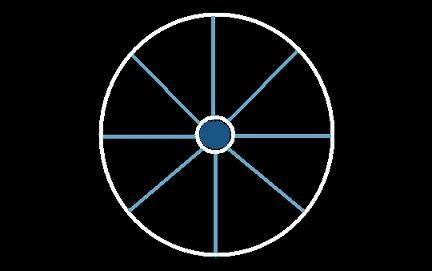Magic Squares Wheel Method-Redux Part II
New Variants of Order 5
The wheel method is a means of constructing magic squares by a random access means instead of sequentially like the Loubère and Méziriac methods which has been rewritten in a more simplified form. The method patially fills up a square to form a wheel structure using numbers chosen from a complementary table of order n then randomly fills up the rest of the square with numbers chosen from whatever is left in the complementary table. This paper is a simplification of the original paper taking a more facile approach.
Three 5th order variants have been constructed that differ from the original at the left diagonal.
These three variants are
the Reverse: 12 → 11 → 13 → 15 → 14, the Forward II: 11 → 14 → 13 → 12 → 15 and
the Reverse II: 12 → 15 → 13 → 11 → 14,
where these sequences are chosen from the values ½(n2-n+2) to ½(n2+n).
The squares are filled according to the method employed previously first forming the wheel structure and then filling in randomly the
"non-spoke" values i.e., white cells chosen from pairs of numbers from the complementary table. Variants 2 and 4 place the complementary pairs across the square, for example {18,8}, and these end up as border squares. Placing the complementary pairs on the same row, again {18,8}, produces the Variant 3 non border square.
Variant 2 Border Square
| 12 | |
6 |
| 22 |
| | 11 |
5 |
23 | |
| 24 | 25 | 13 |
1 | 2 |
| 3 |
21 | 15 | |
| 4 | |
20 |
| 14 |
|
⇒ |
| 12 | 18 |
6 |
7 | 22 |
| | 11 |
5 |
23 | |
| 24 | 25 | 13 |
1 | 2 |
| 3 |
21 | 15 | |
| 4 | 8 |
20 |
19 | 14 |
|
⇒ |
| 12 | 18 |
6 |
7 | 22 |
| 16 | 11 |
5 |
23 | 10 |
| 24 | 25 | 13 |
1 | 2 |
| 9 | 3 |
21 | 15 | 17 |
| 4 | 8 |
20 |
19 | 14 |
|
Variant 3
| 11 | |
5 |
| 23 |
| | 14 |
20 |
4 | |
| 25 | 2 | 13 |
24 | 1 |
| 22 |
6 | 12 |
|
| 3 | |
21 |
| 15 |
|
⇒ |
| 11 | 19 |
5 |
7 | 23 |
| | 14 |
20 |
4 | |
| 25 | 2 | 13 |
24 | 1 |
| 22 |
6 | 12 | |
| 3 | 8 |
21 |
18 | 15 |
|
⇒ |
| 11 | 19 |
5 |
7 | 23 |
| 17 | 14 |
20 |
4 | 10 |
| 25 | 2 | 13 |
24 | 1 |
| 9 | 22 |
6 | 12 | 16 |
| 3 | 8 |
21 |
18 | 15 |
|
Variant 4 Border Square
| 12 | |
6 | |
22 |
| 15 |
21 | 3 |
|
| 24 | 1 |
13 | 25 |
2 |
| 23 |
5 | 11 |
|
| 4 | |
20 | |
14 |
|
⇒ |
| 12 | 18 |
6 | 7 |
22 |
| 15 |
21 | 3 |
|
| 24 | 1 |
13 | 25 |
2 |
| 23 |
5 | 11 |
|
| 4 | 8 |
20 | 19 |
14 |
|
⇒ |
| 12 | 18 |
6 | 7 |
22 |
| 16 | 15 |
21 | 3 |
10 |
| 24 | 1 |
13 | 25 |
2 |
| 9 | 23 |
5 | 11 |
17 |
| 4 | 8 |
20 | 19 |
14 |
|
The complementary 5th order employed for construction of these variants is shown below where the value in the top strand is complementary to the value in the bottom strand:
| 1 | 2 |
3 | 4 |
5 | 6 |
7 | 8 |
9 | 10 |
11 | 12 |
|
| 13 |
| 25 | 24 |
23 | 22 |
21 | 20 |
19 | 18 |
17 | 16 |
15 | 14 |
|
The next page uses variants 2, 3 and 4 of 7x7 squares.
Go to previous page . Go back to homepage.
Copyright © 2020 by Eddie N Gutierrez. E-Mail: enaguti1949@gmail.com

